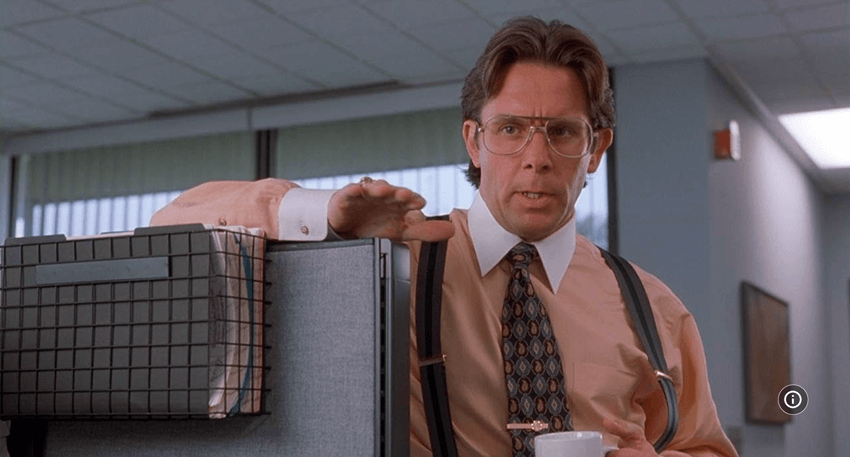CSotD: Too Much Monkey Business
Skip to commentsEdison Lee (KFS) asks and answers the intriguing question, Why do they give rebates instead of discounts?
The answer being that, if they offered a discount, they’d have to give it to everyone who bought the product. By framing the savings in the form of a rebate, they only have to give it to the people who actually follow through by filling out the form and attaching the receipt and coupon.
Given reality and human nature, the potential for savings is obvious.
There are a few other issues involved. If you buy a car and get a rebate, you’re likely paying on a loan for the full amount, so that, if you don’t plow the entire rebate back into a pre-payment on that loan, you’re paying to borrow money you thought you weren’t spending.
Not that discounts shouldn’t send up a few red flags of their own, but this falls into the “Maybe it’s just me” category: I’m happy to get 40 cents off on a jar of mustard, but when I see ads offering $1,000 off on a mattress, it gives me pause because I have no intention of spending $1,000 on a mattress in the first place.
And I’d feel the same way if they offered it as a rebate.
Elsewhere in consumer economics, Jeffrey Koterba notes the three ways of exiting a store with the stuff you wanted.
Shoplifting has gone from a cost factor and an annoyance into a genuine crisis for a number of retailers. At the height of inflation, there was buzz on social media about overlooking the person you saw pocketing a packet of cheese while checking out the rest of his groceries, and it did feel like tattling to speak up over petty theft by someone who might be undergoing hard times.
But it’s reportedly grown well beyond that, to the point where some chains are threatening to pull out of neighborhoods where theft is a serious enough problem to make being there unprofitable.
There was a recent bit of Internet uproar over a bill in California that would reportedly make it illegal to confront shoplifters, but that was a misreading of a clause that has since come out of the bill, which remains under consideration.
The measure would have prevented employers from firing employees for refusing to confront either shoplifters or active shooters, but, as things stand, they can still do so, at least if the employee also declined to call the police, whose job it is to confront bad guys.
Which reminds me of a fellow I’ve mentioned here before, who was a Green Beret in Cambodia when we weren’t in Cambodia. He saw some pretty hairy stuff up there in the highlands, but only got shot once, and that was by a little cigarette boy in Saigon while he was on R&R. It was not an experience he enjoyed.
Bob’s first job when he got out was as a security guard at a bank, and one day the president of the bank asked to see his gun. He noted that it was not loaded, and Bob explained, “If they don’t have guns, I won’t need bullets, and, if they do have guns, I’m not drawing mine.”
Which seems logical but didn’t quite fit the job description. So it goes.
Combined with today’s entry in The Heart of Juliet Jones (Vintage KFS), it reminds me of an armed bank robbery back when I was a reporter. I spotted the flashing lights and yellow tape on my way back from lunch and stopped, but found several of my associates already there on the job.
The bank VP — who, as a business reporter, I knew fairly well — was standing in the parking lot looking disconsolate, so I came up to him.
“How much did they get?”
“$25,000.”
“You’re bonded, right?”
“Yeah.”
“Well, it could have been worse. They could have taken out a loan to open a restaurant. You’d have never gotten that back.”
It was likely the only time he laughed that day.
Elsewhere in the business world, Speed Bump (Creators) comments on the work-from-home phenomenon, and just in time because the bosses are starting to draw in the reins and demand that people return to the office. The pandemic is over, after all, and, besides, what’s the good of having all these big shiny offices if nobody is in them?
I do understand that it’s hard to drop by and offer your managerial wisdom to subordinates who aren’t in the office, mind you, and you don’t want to set up an entire Zoom meeting just to remind them about their TPS forms.
But I can honestly say that, most of the jobs I’ve held, I’d have done as well at home as I did in the office. Of course, in my freelance days, I was always at home anyway, and my last job — a decade-long gig — had me 2,000 miles from the office, which I visited twice a year.
The two jobs where I genuinely needed to be in the office involved my ping-ponging between marketing, news and production, which involved a lot of coordination among disparate people and also probably a lot of micromanagement on my part.
But come on: Communications don’t have to involve Zoom meetings. Even Bill Lumbergh can be taught how to use a telephone.
Betty (AMS) brings up a modern inconvenience that I haven’t gotten into. When I order food, I go to the menu on the restaurant’s website, call them up to order and then go fetch it myself. It’s not exactly a Luddite approach; it’s more like a culinary version of Occam’s Razor, where the simplest solution is also the correct one.
Which also makes me wonder, with all the fabulous options available through the phone, if ordering dinner is becoming like choosing a movie on Netflix, and that, no matter how comfortable Bub becomes with the app, they’ll still never come to a decision about what’s for dinner?
Too much education can ruin a simple joke, and when I saw this Pardon My Planet (KFS), I thought “Zeno’s Paradox!” or, specifically, of Achilles and the Tortoise.
If she scared him half to death and did it again, she’d scare him half to death again, but it would seem like a quarter to death since he was already down by half. And on and on, infinitum.
Not suggesting I haven’t seen relationships like that, mind you.









Comments 8
Comments are closed.